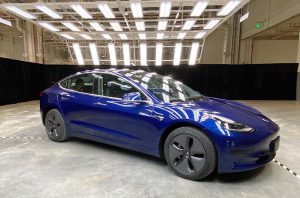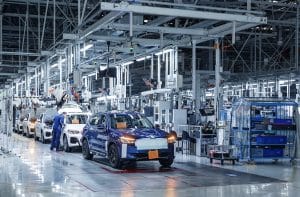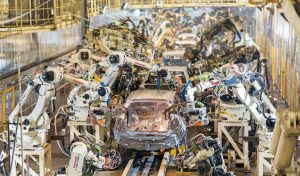After pushing the production of electric vehicles for the past few years, China’s government is taking a step back, easing mandates and providing flexibility for automakers to get back on their economic feet in the wake of the coronavirus pandemic.
Government officials suggested that they might ease production quotas on NEVS, or new energy vehicles, and have reclassified gas-electric hybrid vehicles to make them more favorable toward meeting the existing NEV production mandates, Reuters reported.
Prior to this, China’s government enforced the toughest EV rules in the world as it pushed to further improve air quality in the country’s largest cities. As a result, what was already the world’s largest automotive market quickly became the world’s largest electric vehicle market too.
(BMW confirms China-built iX3 will launch by end of 2020.)
China, which was the first country to go through the pandemic which currently plaguing the U.S. and parts of Europe, is now returning to normal and automakers are ready to sell new vehicles. However, since workers are just getting back to their jobs, they don’t have the money to purchase more expensive NEVs.
This has happened despite the government’s move to extend NEV subsidies it was in the process of cutting back to wean buyers off. The reclassification of hybrids, which came to light June 21, is the first step in the process of helping automakers recover financially.
Automakers must produce new energy vehicles to earn “points” to offset negative points incurred for manufacturing vehicles using internal combustion engines. However, the change in classification to “low fuel consumption passenger vehicles” also carries fewer “points” than gas- or diesel-powered vehicles.
China’s Ministry of Industry and Information Technology said the policy permits automakers to gradually increase the production of gas-electric hybrids while cutting back on all-electric vehicles from 2021 through 2023.
(China passenger car sales rise slightly in May.)
Additionally, the government is mulling a plan that would allow automakers to use points they earn next year to offset negative points received this year, Reuters reported. Industry officials consider it a supportive move as automakers can manage vehicle production better with less policy impact.

Tesla Model 3 sedan sales built at the Shanghai Gigafactory have been in recovery mode in the wake of the pandemic.
The move to revise the mandates comes as large automakers like Volkswagen, BMW, Volvo and others are formalizing investments and product commitments for electric vehicles in China. VW recently announced it was investing $2 billion in China for its EV development and production. BMW recently said it would be building its new iX3 utility vehicle with its partner Brilliance Automotive later this summer.
Chinese car sales appear to be coming back strong as the Asian giant’s coronavirus crisis fades away, demand rising by as much as 0.9% year-over-year, the China Association of Automobile Manufacturers, or CAAM, said in a preliminary report.
That would mark a massive turnaround from just two months ago, when Chinese car sales all but stopped as COVID-19, the disease caused by the coronavirus, swept through the country. More significantly, if the final numbers hold true to the initial estimate, it would mark the first-time sales in China have grown, year-over-year, since mid-2018.
(China car market rebounds from coronavirus crisis.)
China’s auto industry saw a 1.9% increase in year-over-year sales in May with luxury cars leading the charge. The China Passenger Car Association said that premium and luxury passenger car retail sales rose 28% last month compared with year-ago results.


